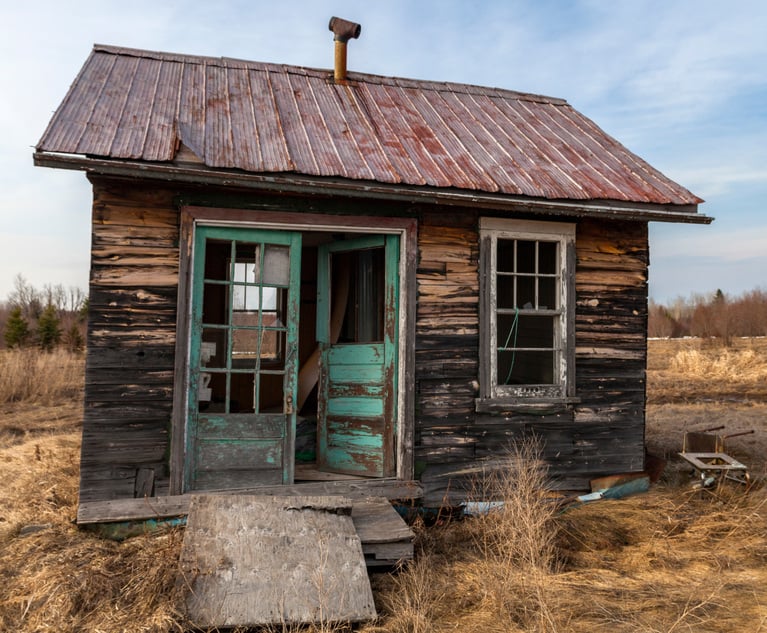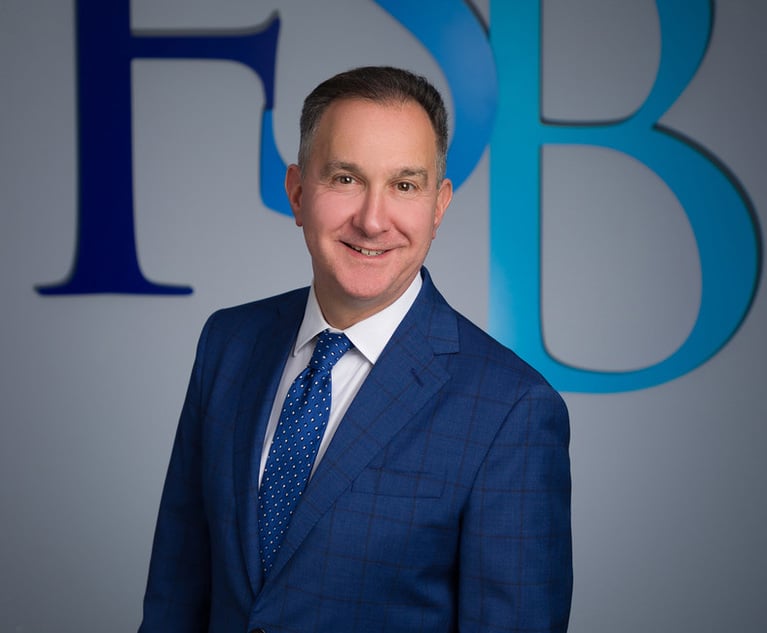 New Jersey Statehouse/photo by Carmen Natale
New Jersey Statehouse/photo by Carmen NataleBill Would Clarify Standard for Sex Abuse Cases Against Public Entities
The Assembly Judiciary Committee on Monday passed A-5392, which would establish liability standards in sexual abuse lawsuits filed against public entities and public employees identical to standards concerning civil suits against nonprofit entities set forth in the Charitable Immunity Act.
May 20, 2019 at 09:57 PM
6 minute read
Just before Gov. Phil Murphy issued a statement on his signing of S-477 into law earlier this month to ease time bars on certain civil suits alleging sexual offenses, he requested that legislative sponsors address a portion of the bill pertaining to public entities, such as schools and other taxpayer-funded organizations.
Murphy specifically requested that the Legislature “introduce and swiftly pass a bill that will correct an error in the section of the bill relating to the liability of public entities.”
The way S-477 was worded, it could have effectively made public entities such as schools automatically liable for sexually based offenses without plaintiffs having to offer proof, according to attorneys and lawmakers who followed the bill.
The section of S-477 in question, raised as an issue partly because of the use of the phrase “is liable,” provides, “Notwithstanding any other provision of law to the contrary, including but not limited to the 'New Jersey Tort Claims Act,' N.J.S. 59:1-1 et seq., a public entity is liable in an action at law for an injury resulting from the commission of sexual assault, any other crime of a sexual nature, a prohibited sexual act … or sexual abuse[.]”
In a statement, Murphy said, “This section inadvertently fails to establish a standard of proof for cases involving claims filed against public entities. If unaddressed, the lack of clarity would create uncertainty and likely lead to additional litigation.
“I have received assurances that the Legislature will correct this omission by clarifying that public entities should be held to the same standard of liability that is applied to religious and nonprofit organizations,” added the governor. “Applying a different standard would be unjustified.”
The Assembly Judiciary Committee responded by passing A-5392 on Monday by a 5-1 vote. The measure establishes liability standards in sexual abuse lawsuits filed against public entities and public employees, identical to standards concerning civil suits against nonprofit entities set forth in the Charitable Immunity Act.
The measure would amend the Tort Claims Act to provide: “Any immunity from civil liability granted to a public entity … or public employee shall not apply to an action at law claiming that a willful, wanton or grossly negligent act of a public entity or public employee resulted in a sexual assault, any other crime of a sexual nature, a prohibited sexual act as defined in section 2 of P.L.1992, c.7 (C.2A:61B-1) being committed against a person.”
The bill also says: “Any immunity from civil liability granted to a public entity shall not apply to an action at law claiming that the negligent hiring, supervision, or retention of any public employee resulted in a sexual assault, any other crime of a sexual nature, a prohibited sexual act as defined in section 2 of P.L.1992 , c.7 (C.2A:30B-2) or sexual abuse as defined in section 1 of P.L.1992, c.109 (C.2A:61B-1) being committed against a minor under the age of 18.”
The bill would take effect on Dec. 1, 2019, the same effective date of the new statute-of-limitations law.
“The bill creates parity … for the different types of entities covered in the bill by making amendments to the Tort Claims Act,” said Assembly Judiciary Committee Chairwoman Annette Quijano, D-Union, the bill's sponsor and an attorney, after the vote. “We are trying to make sure the bill is fair.”
Voting with Quijano in favor of A-5392 were committee Vice Chairwoman Carol Murphy, D-Burlington, Gordon Johnson, D-Bergen, William Spearman, D-Camden, and Erik Peterson, R-Hunterdon. The lone “no” vote was Assemblyman Patrick Michael Carroll, R-Morris.
The Senate version, S-3739, was referred to the Senate Judiciary Committee. No hearing date has been scheduled yet.
Victims rights attorney Greg Gianforcaro of Phillipsburg, who has settled some 200 civil cases concerning child sexual abuse, mostly by clergy, said the new bill provides what was missing in S-477.
“The reason for the amendments is the governor's request that public entities under the Sexual Abuse Act be held to the same standard as private entities,” Gianforcaro said by phone on Monday.
A law enforcement official who was present at Monday's hearing, who asked not to be named because he was not authorized to speak on the record, said, “Obviously, public entities are in a somewhat different posture than charities because it's the taxpayers who pay.
“You still have the interest in fully compensating victims, but also the countervailing interest of the taxpayers who would pay the cost,” he said. “The bill that was signed was written with strict liability [language] with no standard of culpability. Like asking public entities to sign a blank check.
“This is really to clarify that and allows the Legislature to go back and fix this without jeopardizing the bill, which was already signed into law, or exposing public entities to the kind of liability that potentially they would have faced had this not been fixed,” the law enforcement official added.
The signing of S-477 by the governor on March 13 significantly extends the statute of limitations for sexual abuse claims and creates a two-year filing window for sexual abuse claims that would otherwise be time-barred by the statute of limitations that goes into effect on the bill's enactment on Dec. 1.
The law provides:
- A two-year window from enactment for the filing of any civil case alleging adult or minor sexual abuse that occurred in the past;
- That anyone under 18 who has been sexually abused in the past be able to bring a cause of action within the next two years;
- That those who were sexually abused in the past as minors and who miss the two-year filing window be able to bring their cause of action until age 55;
- That those 55 and older who allege delays in connecting past abuse to damages have an opportunity to seek justice through the courts, a period of seven years from the point they made that connection.
“I recognize that this issue has evoked strong passions on both sides, as supporters of the bill rightly note that it greatly increases the ability of victims of sexual abuse to pursue justice through the court system,” Murphy said after signing the bill. “Opponents argue that by exposing religious and nonprofit organizations to potentially massive financial liabilities, the bill may have the unintended effect of inhibiting these organizations from providing the services that many vulnerable New Jerseyans rely on.
“I take these concerns seriously,” Murphy added, “but I cannot deny victims the ability to seek redress in court for sexual abuse that often leaves trauma lasting a lifetime. I am confident that our judicial system is the right forum to assess these claims fairly and impartially.”
This content has been archived. It is available through our partners, LexisNexis® and Bloomberg Law.
To view this content, please continue to their sites.
Not a Lexis Subscriber?
Subscribe Now
Not a Bloomberg Law Subscriber?
Subscribe Now
NOT FOR REPRINT
© 2024 ALM Global, LLC, All Rights Reserved. Request academic re-use from www.copyright.com. All other uses, submit a request to [email protected]. For more information visit Asset & Logo Licensing.
You Might Like
View All


Hit by Mail Truck: Man Agrees to $1.85M Settlement for Spinal Injuries
Trending Stories
- 1ClaimClam Wanted to Boost Class Action Claims Rates. But Judges and Attorneys Fought Back
- 2'We Will Sue ... Immediately': AG Bonta Says He's Ready to Spend $25M Battling Trump
- 311 Red State AGs Demand Damages in Antitrust Lawsuit Shaming ESG Climate Investors
- 4In-House Moves of Month: Discover Fills Awkward CLO Opening, Allegion GC Lasts Just 3 Months
- 5Delaware Court Holds Stance on Musk's $55.8B Pay Rescission, Awards Shareholder Counsel $345M
Who Got The Work
Michael G. Bongiorno, Andrew Scott Dulberg and Elizabeth E. Driscoll from Wilmer Cutler Pickering Hale and Dorr have stepped in to represent Symbotic Inc., an A.I.-enabled technology platform that focuses on increasing supply chain efficiency, and other defendants in a pending shareholder derivative lawsuit. The case, filed Oct. 2 in Massachusetts District Court by the Brown Law Firm on behalf of Stephen Austen, accuses certain officers and directors of misleading investors in regard to Symbotic's potential for margin growth by failing to disclose that the company was not equipped to timely deploy its systems or manage expenses through project delays. The case, assigned to U.S. District Judge Nathaniel M. Gorton, is 1:24-cv-12522, Austen v. Cohen et al.
Who Got The Work
Edmund Polubinski and Marie Killmond of Davis Polk & Wardwell have entered appearances for data platform software development company MongoDB and other defendants in a pending shareholder derivative lawsuit. The action, filed Oct. 7 in New York Southern District Court by the Brown Law Firm, accuses the company's directors and/or officers of falsely expressing confidence in the company’s restructuring of its sales incentive plan and downplaying the severity of decreases in its upfront commitments. The case is 1:24-cv-07594, Roy v. Ittycheria et al.
Who Got The Work
Amy O. Bruchs and Kurt F. Ellison of Michael Best & Friedrich have entered appearances for Epic Systems Corp. in a pending employment discrimination lawsuit. The suit was filed Sept. 7 in Wisconsin Western District Court by Levine Eisberner LLC and Siri & Glimstad on behalf of a project manager who claims that he was wrongfully terminated after applying for a religious exemption to the defendant's COVID-19 vaccine mandate. The case, assigned to U.S. Magistrate Judge Anita Marie Boor, is 3:24-cv-00630, Secker, Nathan v. Epic Systems Corporation.
Who Got The Work
David X. Sullivan, Thomas J. Finn and Gregory A. Hall from McCarter & English have entered appearances for Sunrun Installation Services in a pending civil rights lawsuit. The complaint was filed Sept. 4 in Connecticut District Court by attorney Robert M. Berke on behalf of former employee George Edward Steins, who was arrested and charged with employing an unregistered home improvement salesperson. The complaint alleges that had Sunrun informed the Connecticut Department of Consumer Protection that the plaintiff's employment had ended in 2017 and that he no longer held Sunrun's home improvement contractor license, he would not have been hit with charges, which were dismissed in May 2024. The case, assigned to U.S. District Judge Jeffrey A. Meyer, is 3:24-cv-01423, Steins v. Sunrun, Inc. et al.
Who Got The Work
Greenberg Traurig shareholder Joshua L. Raskin has entered an appearance for boohoo.com UK Ltd. in a pending patent infringement lawsuit. The suit, filed Sept. 3 in Texas Eastern District Court by Rozier Hardt McDonough on behalf of Alto Dynamics, asserts five patents related to an online shopping platform. The case, assigned to U.S. District Judge Rodney Gilstrap, is 2:24-cv-00719, Alto Dynamics, LLC v. boohoo.com UK Limited.
Featured Firms
Law Offices of Gary Martin Hays & Associates, P.C.
(470) 294-1674
Law Offices of Mark E. Salomone
(857) 444-6468
Smith & Hassler
(713) 739-1250







